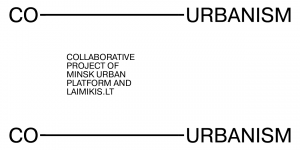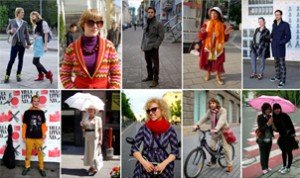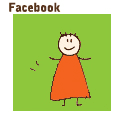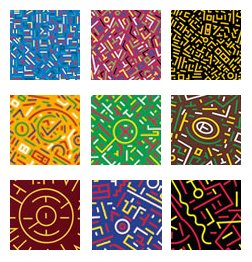Baltic Audience Links: Urban participation, Gdansk
Autorius: Laimikis.lt
 • Nuo 2016 m. Laimikis.lt kartu su savo partneriais Intercult (Švedija) ir platforma River//Cities (EU) ėmė vystyti bendradarbiavimo tinklą, skirtą Baltijos jūros regiono kultūros organizacijoms, kurių veikla siekia įtraukiam miesto vystymui per kūrybines veiklas ir menines praktikas. Taip gimė Baltic Audience Links – iniciatyva, suburianti regiono kultūrines organizacijas dalintis iššūkiais ir metodais, skirtais įtraukiam viešųjų erdvių vystymui [daugiau | river//cities].
• Nuo 2016 m. Laimikis.lt kartu su savo partneriais Intercult (Švedija) ir platforma River//Cities (EU) ėmė vystyti bendradarbiavimo tinklą, skirtą Baltijos jūros regiono kultūros organizacijoms, kurių veikla siekia įtraukiam miesto vystymui per kūrybines veiklas ir menines praktikas. Taip gimė Baltic Audience Links – iniciatyva, suburianti regiono kultūrines organizacijas dalintis iššūkiais ir metodais, skirtais įtraukiam viešųjų erdvių vystymui [daugiau | river//cities].
Per metus mums pavyko įtraukti šiame lauke veikiančias Lietuvos organizacijas į Baltijos jūros regiono tinklą, ir nauji kontaktai jau pradėjo veikti! Ateinantis susitikimas Gdanske skirtas miestiečių dalyvavimui gaivinant viešąsias erdves per kūrybines praktikas. Programą anglų k. skelbiame žemiau [taip pat čia].
• Baltic Audience Links is a growing network of cultural innovators who work in the field of participatory cultural development in the Baltic Sea region. To foster theregional interconnections the partnering hubs (Intercult, River // Cities, Laimikis.lt) arrange meetings for practitioners to share the challenges and methods and establish new interconnections. This time the gathering will take place in Gdansk, May 17-20. The “Urban Participation” event is hosted by Magdalena Zakrzewska-Duda, who represents the Baltic Sea Cultural Centre in Gdansk and River//Cities platform.
Thursday 18 May 2017
14.30 – 18.30 the Baltic Sea Cultural Center, the Old Town Hall, 33/35 Korzenna St.
Welcome by Lawrence Okey Ugwu, director of the Baltic Sea Cultural Center.
14.35-15.25
River//Cities panel session: Participatory Culture on Waterfronts
Led by Klara Kopcinska (R//C Foundation, Warsaw), with the participation of R//C network members incl. Stefan Teisanu (Cluj Cultural Centre (CCC)Romania), Iwona Preis (Intercult Sweden), Magdalena Zakrzewska-Duda (BSCC, Poland).
15.25-15.50
Neighbourhood projects – Clymene Christoforou and Sharon Bailey (both ISIS ARTS, CORNERS project’s experts).
Coffee break
16.10-16.30
Update on Baltic Audience Links Project/ Iwona Preis (Intercult, Sweden)
Presentation of the new BAL website.
16.30 – 19.00 – with coffee break
“Participatory urban culture and non-formal education: Baltic Audience Development” led by Jekaterina Lavrinec (Laimikis.lt, urban games and research lab), Vilnius, Lithuania
This session will be focused on the approaches and challenges that cultural actors meet in their practice of including various groups of people into the process of cultural revitalization of the local areas. We are going to map the tendencies in participatory urban culture by arranging open discussion focusing on innovative methods, tools and challenges in this field. We also will focus on the role of non-formal learning and the role of creativity in developing spatial awareness and sensible attitude to the urban settings. During this session a study, focused on the tendencies in participatory urban culture in Lithuania, Latvia and Poland will be presented, among others.
Cases presented by:
• Eugenijus Kaminskis (Creative Lithuania project, Vilnius)
• Rasa Chmieliauskaite (TEKA, Kaunas, Lithuania).
• Tomas S. Butkus (Vario Burnos, Vilnius, Lithuania)
• Ieva Lange (Projektubanka.lv, Riga, Latvia)
• Anna and Wenancjusz Ochmann (Foundation ARTeria, Zabrze)
• Evita Goze (Latvian Centre for Contemporary Art, Riga)
• Lott Alfreds (ArtAgent, Sweden)
• Julia Löf (Youth in the countryside, Sweden)
Friday 19 May 2017
10.00 -14.00 the BSCC, the Old Town Hall
How to Widen Public Participation in the Urban Planning Context?
Workshops led by Roman Sebastyanski
Authorities of many European cities try to involve their citizens in the visioning, planning and decision making processes concerning their common future. However, in most cases it has been several hundred instead of thousands involved, which raises the question about political legitimacy of decisions based on such processes. The problem corresponds closely with a concepts of Audience Development presented by Chris Torch from Intercult and Agata Etmanowicz from Impact Foundation at the 4th Strategic Project Development Workshop (9th November 2016 Stockholm, Sweden) and Co-urbanism presented at the event in Vilnius, Lithuania (07-08 April 2017). The goal of this three hour seminar and workshop in Gdansk is to present, discuss and co-invent original methods of broadening the public access to urban political decision making processes.
10:00-10:30
Artists and activists roles in widening public participation – the case of Gdansk Shipyard
(15 minutes presentation and 15 minutes discussion)
10:30-12:30 WORKSHOP – How to widen public participation?
11:15-11:45
The cases of Gdansk Shipyard and Glasgow-Govan
Anna Miler (Arteria Association, Gdansk) and Liz Gardner (Fablevision, the UK)
11:45-12:30
Presentations of inventive results and discussion
12:30-13:00
Game of Shipyard – presentation of the interactive urban planning web application
(15 minutes presentation and 15 minutes discussion)
13:00-13:30
Shipyard of Solidarity – presentation of the public participative urban planning process
(15 minutes presentation and 15 minutes discussion)
13:30-14:00
How to widen public participation in the urban planning context? – concluding discussion
(30 minutes)
=================================================================
SPEAKERS
Roman Sebastyański (Poland) is an urban planner engaged with the Gdansk Shipyard regeneration process for over 15 years as an initiator and facilitator of the Gdansk Shipyard Artists’ Colony (2000-2007) and a member of the Gdansk Shipyard activists’ network (since then). During that time, artists and activists managed to discover unique industrial and political identities of that historical place and inform wide public about its rich cultural heritage. Finally, they managed to substantially change the public policy concerning cultural heritage protection of the former Gdansk Shipyard – the birthplace of the Solidarity movement. Currently, he is completing his PhD study at the University of the West of Scotland on public participation in the urban planning processes.
Jekaterina Lavrinec (Lithuania), urban researcher, participatory artist and educator in Urban studies. She is a co-founder of Laimikis.lt – urban games and research lab that serves as an interdisciplinary platform for cultural innovations, non-formal learning and promotes participatory urban culture by launching creative communities’ initiatives in urderused urban spaces. As an assoc.prof. at Vilnius Gediminas Technical University, where she co-founded Creative Industries program, she teaches courses in Urban Studies and Creative Communication in Public Spaces (these are the first modules in Urban Studies in Lithuania). Since 2012 she has been curating annual arts and research week for urban interventions in public spaces “priARTink!” (pARTicipate!). Since 2015 Jekaterina is also a curator of annual practical forum Co-urbanism, that brings together cultural innovators, placemakers, researchers, and urban strategists for sharing the approaches and discussing the challenges in participatory urban development. In her art and research activities she focuses on the issues of the perception of urban environment, user experience in public space, temporal urban solidarities and cooperation.
http://laimikis.lt
Eugenijus Kaminskis (Lithuania), is the participant of “Create Lithuania” programme. Through the analysis of various case studies, they explored the applicability of creative placemaking in Lithuania. According to Eugenijus and his cooperator Ieva Nagytė, “Although creative placemaking is relatively new to the Lithuanian context, there are multiple examples of cultural/creative projects throughout the country, which use its methods. Ieva and Eugenijus will introduce good Lithuanian practices and discuss their challenges, strengths and opportunities”. Researching various interactions between communities, project managers, businesses and governmental institutions, they looked into how comprehensive partnerships can help revitalising and developing quality places. After delivering recommendations to the Ministry of Culture and creating a practical guide for cultural project managers, they continue to promote creative placemaking in various formats.
Rasa Chmieliauskaite (Lithuania), Kaunas-based architect, is an active member of social-cultural movements. She is a member of TeKA – a creative community that seeks to bring interconnections between Kaunas cultural life and the river. The community arranges events, discussions, provocative actions asking, how Kaunas could live WITH the river (not just by the river). How the river can be a source of city life, identity and inspiration.
Tomas S. Butkus (Lithuania) is an independent publisher, editor-in-chief of Vario Burnos. He will share with us innovative approaches in spatial learning. According to Tomas, one of the challenges for contemporary society has become an ability to connect elements and to see a panoramic view. That’s how the idea to start arranging creative workshops for spatial learning has emerged. http://varioburnos.com/dizainas-leidyba-kitaip/
Evita Goze (Latvia) (Latvian Centre for Contemporary Art, Riga) is a project manager of the Survival Kit, an annual contemporary art festival, which has been taking place since 2009. It began as a reaction to the global economic crisis which forced to find new survival strategies, search for innovative solutions and invite for critical reflexion. Each edition of the festival comes out with a particular thematic line and takes place at a different location – an empty building in Riga, thus manifesting its potential and possible development strategies. Goze received a BA in Photography from University of Brighton, UK, in 2013, and an MA in Visual Communication at the Art Academy of Latvia in 2016.
www.lcca.lv
Sharon Bailey (UK). Sharon is an artist and has many years of arts development, management and co-ordination experience with specialist knowledge of visual and media arts practice. She is a founder member and Director of ISIS Arts where she oversees programme development and initiates projects with a range of regional and international partners. She is committed to socially engaged practice and is a successful freelance photographer best known for her work with older people and migrant groups. She has carried out many commissions and residencies in the region and has published two books.
http://www.isisarts.org.uk/
Clymene Christoforou (UK). Clymene is a director and founder member of ISIS Arts; she is responsible for company and programme development. Clymene has a particular interest in international collaboration, and projects which provide an international platform for local engagement. In 2007 Clymene was awarded a NESTA International Cultural Leadership Fellowship with placements in Brussels and India. Since this fellowship, Clymene has been elected onto the board of Culture Action Europe based in Brussels furthering her arts advocacy work with regional and national fora.
http://www.isisarts.org.uk/
Ieva Lange (Latvia).“I am a resident of “Free Riga” neighbourhood residency. “Free Riga” is a collective organising creative and social temporary use of abandoned buildings in Riga. It is both an organiser of temporary use projects, as well as a curator of temporary use initiatives that correspond to the needs of a space and its owner. The neighbourhood residency is a programme working with activation of empty urban spaces particularly in Riga Moscow Forschtadt neighbourhood. Our aim is to continue building a neighbourhood network and to activate nearby urban spaces involving people who live, work or are simply interested in Moscow Forschtadt. My own background is in anthropology with an interest in the making of of urban (green) space and community building.”
https://freeriga.lv/
Stefan Teisanu (Romania) is a cultural entrepreneur interested in community and urban development. He is the Executive Director of Cluj Cultural Centre (CCC), a non-governmental organisation that develops cultural programmes for urban and territorial development. CCC’s 60 members are the local universities, cultural institutions and organisations, business clubs and local and regional administration. Fapte, the company he founded in 2006, organises large cultural and educational events and programmes in Romania and the Republic of Moldova. Stefan is also a founding president of Nord, a community development NGO established in Darabani, his hometown, and active in Romania, Ukraine and the Republic of Moldova. Stefan was the president of AIESEC Cluj-Napoca and established the local chapter of Junior Chamber International. In 2008, he became the Romanian Young Entrepreneur of the Year, accordingly to Junior Achievement. He was later distinguished with the Entrepreneurship Award (AIESEC Romania Alumni, 2009), with the Media Excellence Award (Transilvania Reporter, 2013), with the Contribution to the Romanian Culture Around the World Award (Chernivtsi, Ukraine, 2014), and with Silver Award for Excelence in Arts and Culture (Romanian PR Awards, 2016). His personal belief is that people and cities can be what they want to be.
ArtAgent (Sweden) is an art organisation in Stockholm, Sweden. It was founded in September 2012 and is run by Lott Alfreds and Charlotte Åberg. Through participatory and situation-specific art in the public realm, ArtAgent works to develop an increased awareness of the potential and capacity of art to impact society. ArtAgent runs projects at various locations: in neighborhoods, schools, social institutions, workplaces, public squares and art institutions, both in Sweden and internationally. The members of ArtAgent have a long experience in the field both in Sweden and internationally. The artists in ArtAgent share their knowledge through art practice, meetings and art workshops.
http://artagent.
Evita Goze (Latvian Centre for Contemporary Art, Riga) is a project manager of the Survival Kit, an annual contemporary art festival, which has been taking place since 2009. It began as a reaction to the global economic crisis which forced to find new survival strategies, search for innovative solutions and invite for critical reflexion. Each edition of the festival comes out with a particular thematic line and takes place at a different location – an empty building in Riga, thus manifesting its potential and possible development strategies. Goze received a BA in Photography from University of Brighton, UK, in 2013, and an MA in Visual Communication at the Art Academy of Latvia in 2016.
Lott Alfreds, ArtAgent (Sweden). Lott Alfreds, is a Swedish visual artist with vast experience in collaborative, cross-disciplinary and participatory art projects in Sweden and the Balkan countries. She was educated at the Royal Art Academy in Sweden and, since graduating has exhibited extensively in Sweden and abroad. Alfreds is the co-founder ArtAgent, a non-pro$t organisation focused on the creation and presentation of art projects in the social environment. Since its founding, ArtAgent was responsible numeral international collaborative projects and publications.
Anna Miler (Gdansk, Poland) is a cultural manager and a doctoral student at the University of Gdansk with a background in political sciences and cultural studies. She works in Gdansk Community Foundation as a project coordinator. Anna is also a member of the board in Arteria Association. She is a co-author of „Metropolitanka” and „Shipyard is a Woman…” projects. Their aim is to preserve an intangible heritage of the Gdansk Shipyard, especially oral histories of former female and male workers. She is a co-author of the shipyard’ mobile application, audio guide, six podcasts about female workers in the Shipyard and a route of following women’s footsteps in Gdansk Shipyard: the strike pathway. It tells a story of women taking part in strike, in August 1980. She is a tour guide in the Shipyard.
Katarzyna Kosmala Ph.D (UK) is a curator and freelance art writer, Professor in Culture, Media and Visual Practice at the School of Media, Culture and Society, University of the West of Scotland, UK. She researches cultural labour and discourses of creativity, identity and community in the context of a globalising network society, art production and enterprise, arts-run projects, as well as gender and politics of representation. Her publications include: Precarious Spaces: The Arts, Social and Organizational Change (Eds.) (Intellect Press, 2016), Sexing the Border: Gender, Art and New Media in Central and Eastern Europe (Ed) (CSP, 2014), Art Inquiry on Crossing Borders: Imaging Europe, Representing Periphery (Eds.) (ŁTN, 2013), Imagining Masculinities: Spatial and Temporal Representation and Visual Culture (2013, Routledge). Writes regularly about video and new media art in international journals and catalogues and curates exhibitions. Last year involved in the project: Curating Europes’ Futures. Currently leads the project under RSE-funded research network: Regeneration and Waterfront Heritage Zones in Northern Europe.
www.curatingeuropesfutures.net
https://katarzynakosmala.wordpress.com/
Liz Gardiner (UK). Elizabeth McLellan Gardiner (M.A. DipSecEd, PGMAECP). Trading as Cultural Planning Practice, Liz Gardiner is an artist, teacher and free-lance consultant specialising in cultural planning. As a Doctoral Researcher with a teaching responsibility at the University of the West of Scotland she develops and delivers continuing professional development modules in cultural planning. As executive director of Fablevision , she develops and delivers case study examples in practice – often in partnership with other third sector organisations, community development trusts or local authorities. Current examples include Centipede in Muirhouse, Renfrewshire Witch Hunt1697, Creative Renfrewshire Network and the Tapestry of Renfrewshire in Paisley and Govan Graving Docks Maritime Heritage, the Govan Fair and Clyde Docks Preservation Initiative in Govan. Liz was instrumental in the setting up of cultural networks in Glasgow and Renfrewshire as well as national and international networks (e.g. the Arts and Communities Association for Scotland and Banlieues d’Europe). She has served on the board of Greenspace Scotland, lobbying for recognition of the potential of cultural planning approaches to creating greenspace in our cities. Enterprise Sector. Spearheaded by Liz and Fablevision, the UK’s first CPD course in cultural planning was run in partnership with the University of Strathclyde. The course is now being delivered by Liz with colleagues at the University of the West of Scotland.
Home
Julia Löf (Sweden) has a masters degree in rural development from Swedish University of Agriculture. She has broad experience in civil society from participating and leading associations and projects. Julia is currently working as project leader for the organization Unga på landsbygden, Youth in the coutryside, a national network for young people living in rural areas of Sweden. The organization wants to change the attitudes towards young people, support their involvement in local development and also challenge the urban norm. Unga på landsbygden is now focusing on the project “Young Culture Challenges the Urban Norm”, where seven artists are examining the relation between different places and how they are loaded with meanings and expressions of power in a touring exhibition.
Anna Ochmann (Poland) artist, designer, and also researcher, manager, producer. She is a graduate of the Academy of Fine Arts in Cracow. During her professional career she has worked in art education (as a lecturer and promoter of diplomas), in private and public cultural sector (among others in production of various cultural events, including mass events), in media (as an executive editor of local television and a few newspapers). Since 2006 she has been President of ARTeria Foundation, where she connects the world of fine arts and music with realisation of a variety projects, propagation of an active participation in culture and development of working in creative industries and in cultural sector. Her ideas are achieved through working out the alternative ways of spending free time, innovative methods of social and cultural animation. She specializes in international projects dedicated to the transfer of good practice and the development of trans-European standards and innovations in the cultural education and professional development of artists.
Wenancjusz Ochmann (Poland) musician, composer, educator in artistic and creative area,
experienced trainer of artistic competencies and personal development.
He is a graduate of Music Academy in Katowice (Poland), where he worked in electroacoustical music studio, he was also a scholar of Hochschule fur Musik F. Liszt in Weimar (Germany). In the 90s he was active as a composer of advertising music, to film etudes, and his own music projects, which gained popularity among others in the III program of Polish Radio. He is also co-author the innovative method of teaching languages using the music.
He is the founder and, since 1999, the director of Private Music School of 1st and 2nd degree (implementing curriculum approved by the Ministry of Culture and National Heritage) and the owner of KURORT QULTURY – the independent cultural center which is on the list of European Cultural Centre run by international network Trans Europe Halls, he is also an active impresario of art events. He is also an owner and managing director of the educational institution VENO’S STUDIO Przemysły Qultury, within which he creates and coordinates projects mainly based on using culture/art in the process of socio-economic development (financed from the various European or national funds). He cooperates with the Foundation ARTeria since the beginning of the organisation, especially he is an expert in the area of artistic and cultural education and professionalization of creative sector. http://fundacja-arteria.org
Description of Baltic Audience Links network here and on the river//cities site.
Baltic Audience Links: Stockholm, 21-23 February, 2o17
Baltic Audience Links meeting and public seminar Gdańsk, 17-20 May, 2o17 (at river // cities site).




 2o15: "
2o15: "




Palik komentarą! |Leave your response!